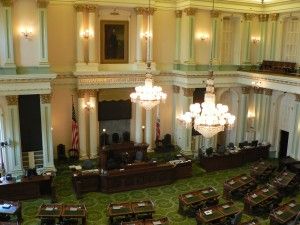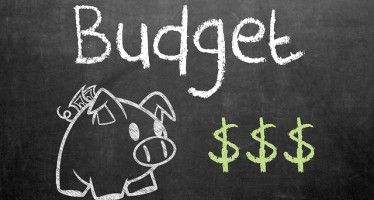Does Prop 25 Change Anything?
DEC. 17, 2010
By ANTHONY PIGNATARO
The promise of Proposition 25 was nothing short of a revolution in how California lawmakers negotiate and approve state budgets. “Real people suffer when legislators play games with the budget,” stated the official argument in favor of the measure. “Prop 25 ends the chaos, allowing schools to plan their budgets responsibly by letting them know what they can expect from the state… It does exactly what it says – holds legislators accountable for late budgets, ends budget gridlock and preserves the 2/3 vote required to raise taxes.”
That voters on Nov. 2 overwhelmingly approved Prop 25 would seem to indicate that most Californians want legislators to pass balanced budgets by the June 15 deadline – a feat rarely achieved in the last few decades. The Legislature won’t return to session for another few weeks, but with Governor-elect Jerry Brown calling for a budget agreement in 60 days, legislators and their staffs are already thinking through the mechanics of next year’s budget.
“We’ll bring in between $82 and $85 billion for the general fund this year,” said one Republican Assembly staffer, summing up his party’s fear of Prop 25. “Now say the Democrats decide to send a $100 billion budget to Brown. What prevents that? We’ve spent $100 billion, and now we have to raise taxes to match it. That to me is the great danger here.”
While certainly a possibility, most Democrats and Republicans in the Legislature seem to think that Prop 25 won’t translate into anything new. Promised end to budgetary gridlock aside, no one on either side of the aisle seems optimistic that Prop. 25 will pave the way to smoother negotiations. In fact, both Democrats and Republicans seem to feel that Prop 25 will ultimately translate into the very same budget shambles we’ve already seen.
“You will probably find it’s about the same,” said Assembly member Diane Harkey, R-Dana Point, vice-chair of the Appropriations Committee and budget committee member. “I think Brown is serious. He’ll be very bold [with spending cuts]. But if Democrats didn’t like Governor Schwarzenegger’s plan, they really won’t like Governor Brown’s plan.”
Acknowledging this reality, Mark Hedlund, a spokesman for Senate President Pro Tem Darrell Steinberg, D-Sacramento, said Democrats don’t believe they can pass a budget simply using their majorities in the Assembly and Senate. “Our feeling is the entire Legislature owns the budget,” he said. “We want and expect them [the Republicans] to be involved. They need to be involved.”
Another Democratic Senate staffer who works on budget issues agreed with Harkey. “I don’t know that Prop. 25 does anything one way or another,” he said. “I don’t see it as a be-all, end-all. Democrats aren’t going into this thinking we’re going to do a 41-vote [in the Assembly] or 21-vote budget [in the Senate].”
Though Democrats hold solid majorities in both legislative houses – 50 of 80 Assembly seats and 24 of 40 Senate seats – which would, under Prop 25, be more than enough to pass budgets on strictly partisan lines, the bipartisan talk makes sense. That’s because, as Harkey pointed out, the state has no more money to spend.
“What will happen is the Democrats will set a spending limit, but they still have to find out how to fund it,” Harkey said. “Tax increases? That will be a problem. I also believe the initial budget you will see will be pretty draconian, but I don’t think you’ll find enough Democrats to sign onto all the reductions. You never did before.”
The fear that Prop 25 would allow a kind of backdoor way for Democrats to raise taxes without the two-thirds supermajority vote required by the state constitution now seems to have been unfounded. During the election campaign California Chamber of Commerce President and CEO Allan Zaremberg sued the State of California, alleging that the measure violated the state’s two-thirds tax-raising vote requirement. The case made it to the Appeals Court, which said in pretty strong language that Zaremberg was wrong.
“[W] e find nothing in the substantive provisions of Proposition 25 that would give a green light to the Legislature to circumvent the existing constitutional requirement of a two-thirds vote to raise taxes,” the three-judge panel ruled in August (though their actual opinion wasn’t published until eight days after the Nov. 2 election). “In our view, Proposition 25 cannot be interpreted to operate as an end-run around the two-thirds vote requirement for raising taxes.”
That would seem to be settled law, which puts legislative Democrats in a bind: What’s the good of being able to speed through a budget if you can’t pay for it? The bind is especially constricting when you think about recent state tax history – nine of the last nine votes to increase taxes went down to defeat. The passage of Proposition 26, which imposed a two-thirds vote requirement on attempts to hike fees or levies, also doesn’t bode well for an attempt to take a tax hike to the people.
Nonetheless, Republicans like Harkey still see Prop 25 as part of an overall plan by Democrats to make it easier to raise taxes. “I see it as an incremental step to get rid of the two-thirds requirement to pass a tax,” she said.
Conspiracy theories aside, Prop 25 does make it possible for Democrats to stop doing things – like cut certain taxes – that were necessary when they had to secure a two-thirds approval vote for a budget.
“It will certainly diminish some of the disastrous leveraging we’ve seen in the past,” the Democratic Senate staffer said. “We wound up doing things that were never good. Like giving away tax breaks for corporations. They were the result of our needing a two-thirds vote. In fact, the two-thirds vote has made our fiscal system worse. Now it doesn’t mean we would stop entirely, but it will stop most cases.”
The result of this posturing and maneuvering – to say nothing of the voter anger that would seem to demand bipartisan support for a future budget – appears to be just a continuation of the tortuous budget dealings of earlier this year. Which is exactly the opposite of what the non-partisan Legislative Analyst’s Office has been calling for.
“In our November 10 report, we recommended the Legislature chip away at the state’s budget problems with $10 billion in permanent – as opposed to temporary – budget solutions in 2011-12,” the LAO reported on Dec. 7.
“The options are just much more limited now,” the Democratic Senate staffer said, adding that it was “possible” that the Legislature could indeed get a budget deal in the next two months. “It’s a much tougher situation all the way around. Work on the budget, as early as possible, is very, very important. But we might still have to come back later in the year.”
Harkey as well predicted that the Legislature would once again resort to temporary expedients and gimmicks to produce a balanced budget (the current budget seemed to lurch into a $6 billion deficit moments after the ink dried).
“We’ll have a budget on time, but we’ll be looking for money to fill the gap,” she said. “I don’t think Prop 25 will produce a budget a whole lot different than the last budget. They still have to fund it.”
Related Articles
Is the state stubbornly running toward financial trouble?
It’s politically popular to rail on the One Percent and demand top earners pay their “fair share.” But they actually already
Split-roll property tax would hit small business hard
Feb. 18, 2013 By Wayne Lusvardi The attacks on Proposition 13 never seem to end. The 1978 tax-cut initiative’s enemies,
Oil tech for CA: From Russia, with love?
On Jan. 1 California’s fracking law drills in – just as the price of oil has dropped to its lowest





